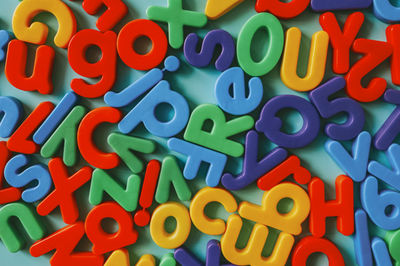Many Shades of the English Language

Every language has its peculiarities, more so in the English language, which is spoken in the largest number of countries in the world. And thus has attained the status of a global language. Factors attributed to this phenomenon are many. One of the major reasons is that the Britishers had a large number of colonies which enabled them to come in contact with the inhabitants of different parts of the world.
Table of Contents
Do you want to teach English abroad? Take a TEFL course!
This post was written by our TEFL certification graduate Stone S. Please note that this blog post might not necessarily represent the beliefs or opinions of ITTT.
Vocabulary
Moreover, the colonies had the English language as the official language. As language is the most potent means of communication, it was natural for them to lend their own words to the native languages and also to borrow their words, which, after long usage, were assimilated in the English vocabulary.
This phenomenon is not restricted to any particular aspect of the English language but it extended to the entire structure including spelling, spelling, the meaning of words, metaphorical expressions and the like. Pronunciation, however, experienced the greatest impact as it depends upon several factors beyond human control as climate, to mention one. Pronunciation of a word markedly varies in a cold and a hot country. The pattern of the original word borrowed from the native colonies was at times retained which affected the pronunciation. Moreover, the natives also tried to imitate their rulers for various reasons did bring about changes and complications in the pronunciation of words. This can be perceived in a classroom where students belong to more than one nation.

Also Read: Classroom Management You Definitely Need to Try
Pronunciation
In my minute observation of this phenomenon, I have found the complications in pronunciation and meaning of words sometimes give rise to the funniest of situations.
Once a student asked me the meaning of a word, which he pronounced as K-no-ledge. I was flabbergasted; I had never heard a word like that. I asked him to show me the word. It was again my turn to be speechless as the word was KNOWLEDGE
Again, a student came across a word, which he pronounced as a psalm, which was PSALM very near to HYMN in meaning. He was terribly perplexed as he could find no relation of SAM (Psalm) with HIM (Hymn) Other words frequently used in literature and politics are no less difficult to pronounce e.g. Genre, Denouement, Realm, Gnome Psyche, Renaissance, Rendezvous, Précis, Bourgeois, Bourgeoisie, Plateau, Rousseau, Island, Tough, etc. On the other hand, words taken from Medical Science, particularly the names of different diseases are awesome e.g. Diarrhoea, Haemorrhage and a sore of others, which make the pronunciation different from the spellings for the reasons enumerated above.
Also Read: Where are the best places to teach English abroad?
Spelling and Pronunciation
The other phenomenon relating to the difference in the meaning of identically pronounced words but spelled differently is equally interesting. On being asked to name the Heir apparent to the throne of England, a boy promptly answered that a pleasing Air always blows across the British throne. Students are easily misled creating precarious import to the sentences as a whole. Words bracketed together like Cease-Seize, Caesar-Seizure, Cheque-Check, Hour-Our, etc have similar implications.

Also Read: "How The Location Influences Your Teaching Resources"
Meaning
Most of the words in the English language have more meaning than one which radically differs from one another e.g. Bear, Rail, Figure, Saw, Side, etc. A minute is a typical example that gives more than two meanings (duration of time, Keen, Record of a meeting) and with each meaning the pronunciation changes.
Hindi is my mother tongue. It has the same alphabets, as Sanskrit has. And the script is called "Devnagri" which has a scientific basis as no other known language in the world can claim to have. It is based on the Sound system emanating from the vocal cords and other places. The result is that in Hindi one speaks what he writes or he writes what he speaks. There is no complication as such which is so common in the English language.
Do you want to teach English abroad? Take a TEFL course!
However, it has some common things with the English language in the sphere of the meaning of a word. In Hindi language also words are there which have more than one connotation These words are vastly used in common parley e.g. Pani (Water) which means water and at the same time connotes prestige as well as glaze, (1.Water is essential for life.2 Exposition of evil deeds marred his water .for ever.3.Malnutrition has taken out the water from his face.),Mander connotes big Palace as well as a Cave [The defeat of the King forced the ladies to reside in Mander (caves) who used to live in big palace], Ber is a small fruit with hard nut inside found everywhere in India. It also denotes the number of times work is done [how many times (ber) do you take full meal?].
Apply now & get certified to teach english abroad!
Speak with an ITTT advisor today to put together your personal plan for teaching English abroad.
Send us an email or call us toll-free at 1-800-490-0531 to speak with an ITTT advisor today.
Related Articles:
- Top 10 Qualities Every Great Teacher Should Have
- The Benefits of Having Good Rapport with Students
- The 10 Most Common Types of EFL Teaching Jobs
- What It's Like To Teach English Online: An Online Teacher Reveals Her Secrets!
- 4 Super Easy Tips for Teaching Vocabulary to Young Learners
- Getting Student Placement Right - The Best Desk Arrangements for EFL Students



